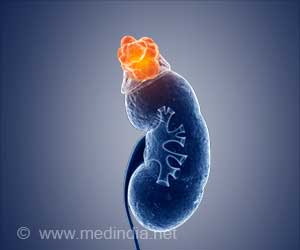While testing a new drug to treat chronic leukemia, Cleveland Clinic researchers discovered new markers that could identify which patients would receive maximum benefit from the treatment.

Chronic lymphocytic leukemia (CLL), a cancer of the white blood cells that is incurable with standard treatment, is the most common type of leukemia in the Western Hemisphere. Conventional chemotherapy is effective at controlling CLL for many years, but the disease always relapses. CLL is characterized by an uncontrolled cell growth and division due to a defect in a process called programmed cell death, or apoptosis. A group of proteins called the Bcl-2 family is responsible for this defect.
Alex Almasan, Ph.D., a researcher in the Lerner Research Institute (LRI) of Cleveland Clinic – in close collaboration with other researchers in both LRI and the Taussig Cancer Institute of Cleveland Clinic – collected blood samples from patients with CLL and tested the ability of a new drug to kill the cancerous cells. The drug, Navitoclax, is already in early stage clinical testing for patients with CLL. Navitoclax appears to be effective for some patients, and until this research study, there had been no clear way to predict who will respond to its effects.
In addition, these studies can be informative to the currently ongoing clinical trials with Navitoclax in other hematologic malignancies or solid tumors.
"Follow-up studies on patients that have been treated with Navitoclax, particularly those that are poor responders, could determine whether the Bcl-2 family genes examined in this study may also be important for development of resistance to this agent," said Almasan.
 MEDINDIA
MEDINDIA



 Email
Email








